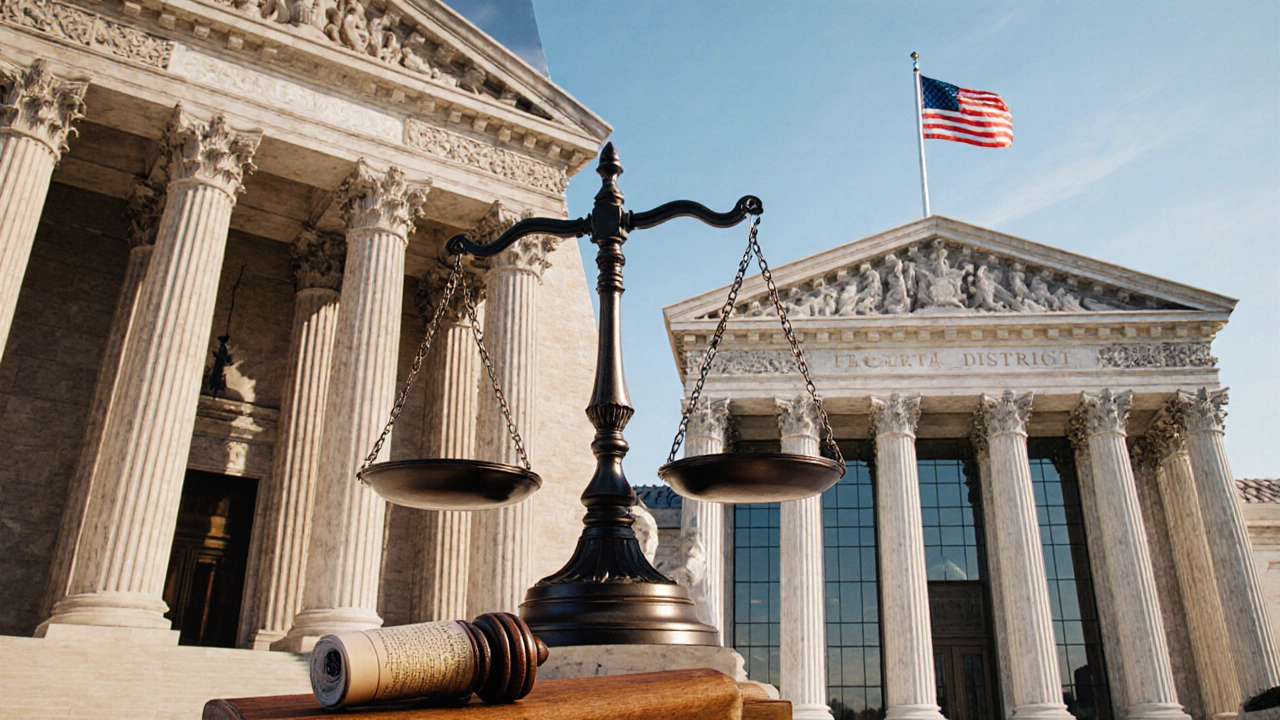Federal Question Jurisdiction: What It Means and Why It Holds Power
When dealing with federal question, a legal issue that arises under the Constitution, federal statutes, or treaties. Also known as federal question jurisdiction, it determines whether a case belongs in federal court instead of a state court. This concept is a core pillar of subject‑matter jurisdiction, the authority of a court to hear a particular type of case. Without proper subject‑matter jurisdiction, any judgment can be tossed out on appeal. The U.S. Supreme Court, the highest appellate body interpreting the Constitution and federal law often clarifies the boundaries of federal question jurisdiction through landmark decisions, shaping how lower courts apply the rule. In practice, a plaintiff must show that the claim’s foundation rests on a federal provision; otherwise, the case stays in state court, even if the parties are from different states. This relationship—federal question jurisdiction encompasses subject‑matter jurisdiction and is interpreted by the Supreme Court—creates a clear pathway for litigants seeking a federal forum.
Impact on Different Legal Areas and How It Connects to Other Jurisdictions
Beyond constitutional claims, federal question jurisdiction touches every branch of law because many statutes create private rights. For example, a civil rights claim under 42 U.S.C. § 1983 automatically invokes federal question jurisdiction, pulling the case into the federal docket. The interplay with civil procedure, the set of rules governing how courts process lawsuits is vital: Rule 12(b)(3) allows a defendant to move to dismiss for lack of federal question jurisdiction early in the case, saving time and resources. Another related concept is diversity jurisdiction, a separate federal jurisdictional ground based on parties’ citizenship and an amount‑in‑controversy threshold. While diversity jurisdiction also places cases in federal court, it does so without requiring a federal question, showing that the federal system offers two distinct pathways for federal forum access. The semantic triple “federal question jurisdiction influences civil procedure” and “diversity jurisdiction provides an alternative to federal question jurisdiction” illustrate how these entities interact, guiding lawyers in strategic forum selection. Understanding these connections helps practitioners navigate filing decisions, anticipate removal motions, and assess appellate options—all essential skills for anyone working in U.S. litigation.
Below you’ll find a curated collection of articles that dive deeper into these topics, from the nuances of removal and the role of the Supreme Court to practical guides on filing federal claims. Whether you’re a law student, a practicing attorney, or just curious about how federal courts decide which cases they can hear, the following resources will give you actionable insights and real‑world examples.

When Does a Civil Case Go Federal? Key Factors Explained
Learn when a civil lawsuit shifts to federal court, covering federal question, diversity, exclusive statutes, removal rules, and a practical checklist.